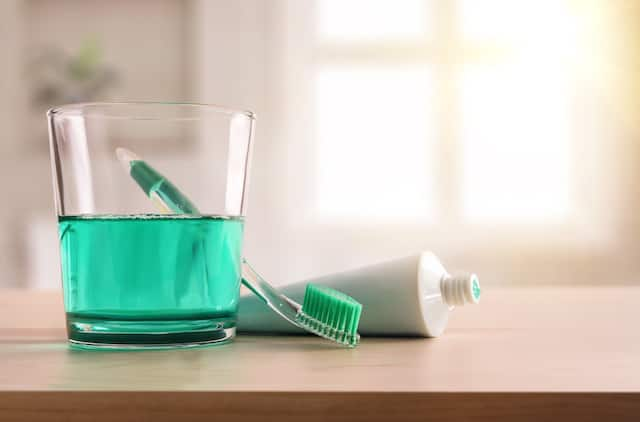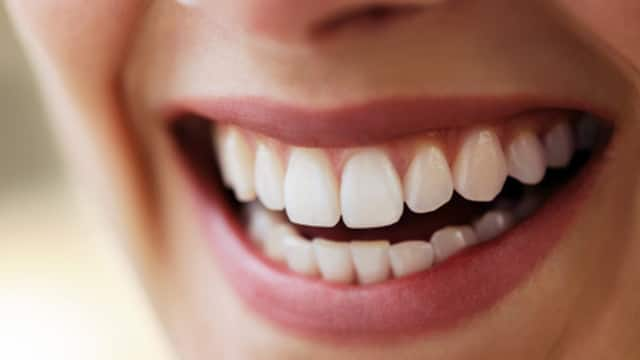-
-

TEETH WHITENING
What Is Stannous Fluoride Toothpaste?Stannous fluoride toothpaste helps prevent cavities, reduce sensitivity, fight plaque, and support daily gum and enamel health.

Selecting Dental Products
Best Toothpaste in India: Five Dentist-Recommended TypesToothpastes today are formulated to meet your every dental need and come in many flavours. Have your dental professional suggest the best toothpaste in India.
-
Science & Innovation
- ORAL HEALTH CHECK
- PRODUCT MATCH
- Colgate® | Toothpaste, Toothbrushes & Oral Care Resources
- Oral Health
- Tooth Sensitivity
- How Does Mouthwash For Sensitive Teeth Work?


Regular rinsing with specific types of mouthwash can actually bring relief to many who suffer from tooth sensitivity. A mouthwash for sensitive teeth contains ingredients that help numb nerve endings and strengthen tooth enamel, and it can be used along with similar toothpastes or on its own. Studies indicate that mouthwashes may be as good as toothpaste at reducing sensitivity.
Tooth Sensitivity
Depending on the cause, according to the American Dental Association (ADA), using desensitising dental products as home treatments can suppress the sensitivity. Mouthwashes desensitise teeth in two major ways: by applying solutions that anesthetise the delicate tubules in the underlying dentin area of the teeth, and by coating your tooth enamel with materials that reinforce it and make it stronger. These strengthening compounds also fill in these microscopic tubules that lead into the inner tooth pulp through the dentin that lies below tooth enamel. Results don't occur overnight, however. It takes regular use to build up the anesthetising effect and strengthen the tooth enamel.
Mouthwash or Toothpaste?
It can be difficult to decide whether to use a mouthwash or a toothpaste to treat your sensitivity, but research suggests both are equally effective. While not a replacement for daily brushing and flossing, use of mouthwash (also called mouthrinse) may be a helpful addition to the daily oral hygiene routine for some people including tooth sensitivity. Like interdental cleaners, mouthwash offers the benefit of reaching areas not easily accessed by a toothbrush and thus help to manage tooth sensitivity.
The question of whether to rinse before or after brushing may depend on personal preference; however, to maximize benefit from the oral care products used, manufacturers may recommend a specific order for their use, depending on ingredients. For example, some dentifrice ingredients (like calcium hydroxide or aluminium hydroxide) can form a complex with fluoride ions and reduce a mouthwash’s effectiveness. Therefore, vigorous rinsing with water may be recommended after brushing and before rinsing if these ingredients are present.
Using a mouthwash does not take the place of optimal brushing and flossing. Mouthwashes may offer additional benefit in terms of reducing the risk of bad breath, cavities, or gum disease; or for relief of dry mouth or pain from oral sores or tooth sensitivity. If you have sensitive teeth, you can use a specialty mouthwash, or a toothpaste for sensitive teeth, or both.
Sensitive teeth may be a sign of serious dental problems, so always mention any sensitivity to your dentist. He can check the source of your discomfort and offer in-office treatments. In the meantime, you can trust a mouthwash for sensitive teeth to provide you relief from current pain.
This article is intended to promote understanding of and knowledge about general oral health topics. It is not intended to be a substitute for professional advice, diagnosis or treatment. Always seek the advice of your dentist or other qualified healthcare provider with any questions you may have regarding a medical condition or treatment.
ORAL HEALTH QUIZ
What's behind your smile?
Take our Oral Health assessment to get the most from your oral care routine
2.3 billion
people worldwide suffer from tooth decay
ORAL HEALTH QUIZ
What's behind your smile?
Take our Oral Health assessment to get the most from your oral care routine
2.3 billion
people worldwide suffer from tooth decay
Related Products

Helping dental professionals
More professionals across the world trust Colgate. Find resources, products, and information to give your patients a healthier future








